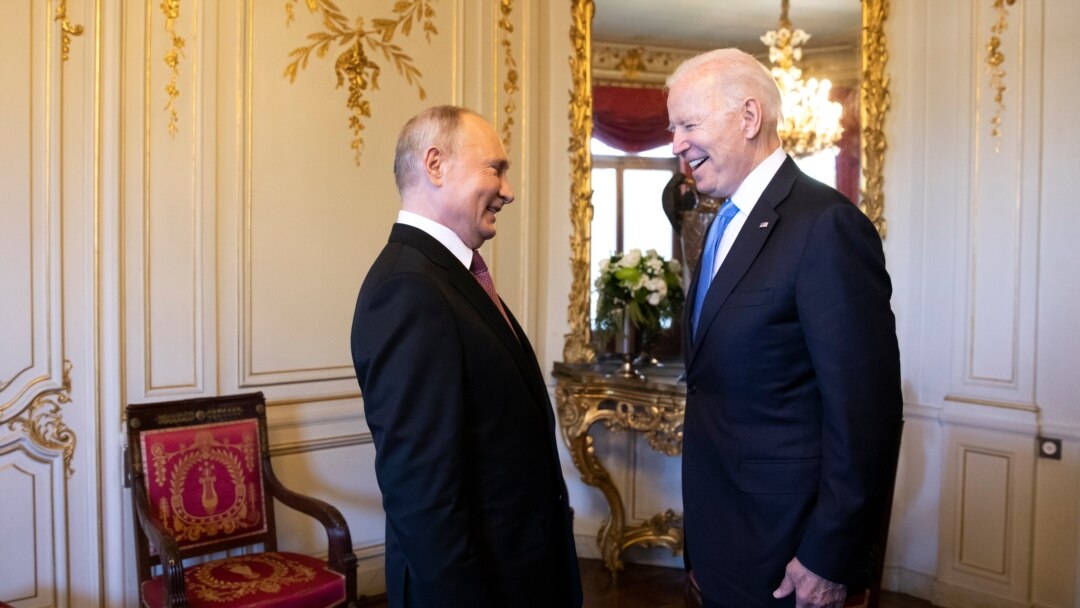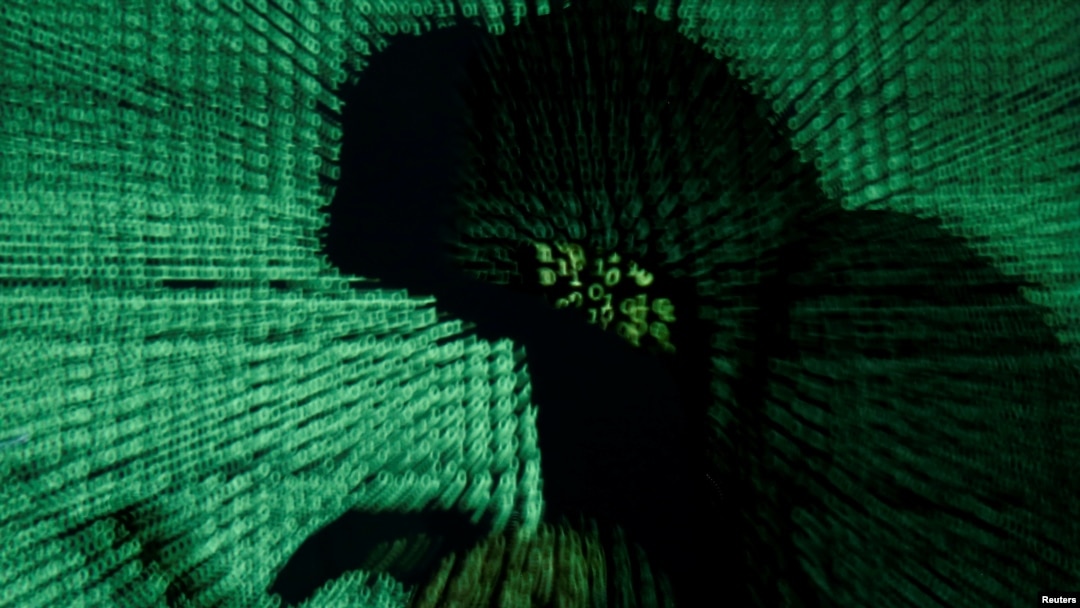U.S. warnings to Russian President Vladimir Putin over shielding cybercriminals holed up in Russia appear to have made little impact, according to top U.S. law enforcement and cyber officials.
"There is no indication that the Russian government has taken action to crack down on ransomware actors that are operating in the permissive environment that they've created there," Paul Abbate, deputy director of the Federal Bureau of Investigation, said Tuesday at an intelligence summit just outside Washington.
"We've asked for help and cooperation with those who we know are in Russia, who we have indictments against, and we've seen no action," Abbate said. "So, I would say that nothing's changed in that regard."
U.S. President Joe Biden has twice called on the Russian leader to take action against cybercriminals operating out of Russia — first at a summit in June in Geneva and again in a phone call a month later.

FILE - Russian president Vladimir Putin, left, talks with U.S. president Joe Biden during the U.S. - Russia summit in Geneva, Switzerland, June 16, 2021.
"I made it very clear to him that the United States expects when a ransomware operation is coming from his soil, even though it's not sponsored by the state, we expect them to act if we give them enough information to act on who that is," Biden told reporters following the July phone call.
Since the initial talks, senior White House officials have noted a decrease in ransomware attacks, though they have been hesitant to attribute the change to any action by Moscow.
"The present absence of criminal activity should not be confused with solid policing," U.S. National Cyber Director Chris Inglis told an audience later Tuesday.
"There's still a monetary incentive and possibly a geopolitical incentive to allow that to come back," he said, pushing back against calls for the U.S. to go on the offensive.
"There is a sense that we can perhaps fire some cyber bullets and kind of shoot our way out of this. That will be useful in certain circumstances if we have a clear shot at a cyber aggressor and it could take them offline," Inglis said. "That's not going to affect the leadership that allows this to happen."
"We have to figure out what is it that matters to Putin and the oligarchs and how do we change their decision calculus," he added.
The Kremlin has repeatedly denied any role in a series of ransomware and cyberattacks against U.S. companies and infrastructure.
And following the Biden-Putin call in July, it issued a statement supporting collaboration on cybersecurity, calling for such efforts to "be permanent, professional and nonpoliticized and should be conducted via special communication channels ... and with respect to international law."
The U.S. blames Russia or Russian-based cyber actors for a series of high-profile hacks and ransomware attacks, including the December 2020 hack of SolarWinds, a U.S.-based software management company, and for the May 7 ransomware attack against Colonial Pipeline, the largest fuel pipeline operator in the U.S.
U.S. officials have blamed the GRU for targeting the Democratic National Committee during the 2016 elections and the pharmaceutical companies developing vaccines against the coronavirus.
Asked Tuesday whether the U.S. has reached the point where it is ready to take action against Russia, the commander of U.S. Cyber Command deferred to the White House.
"That's obviously for the president to decide," CYBERCOM's General Paul Nakasone said. "But those options certainly will be provided for his consideration."
VOA's Masood Farivar contributed to this report.


